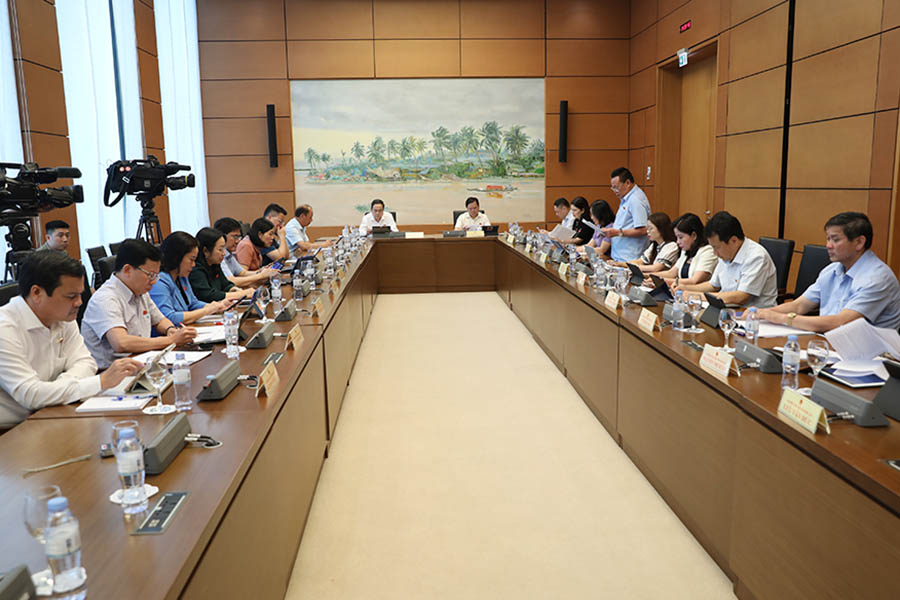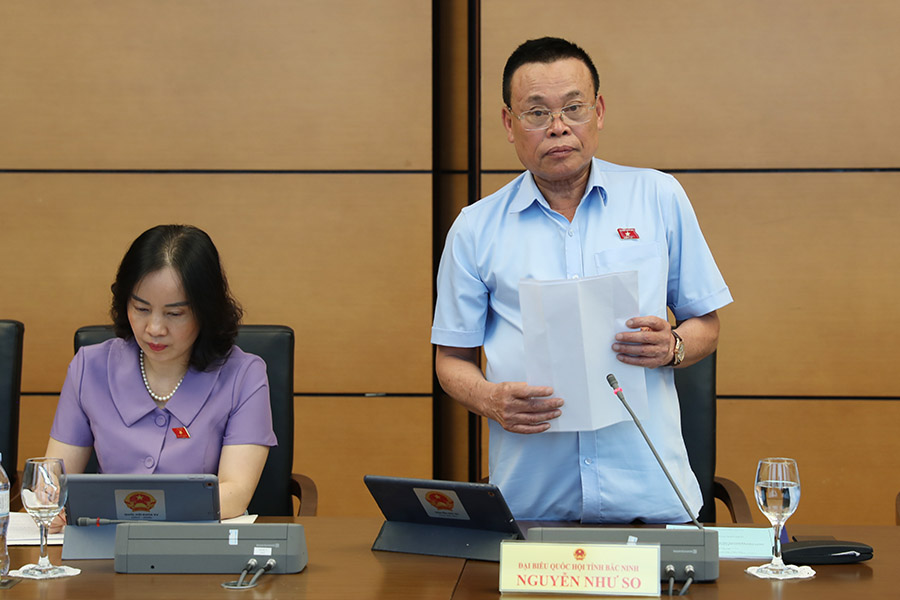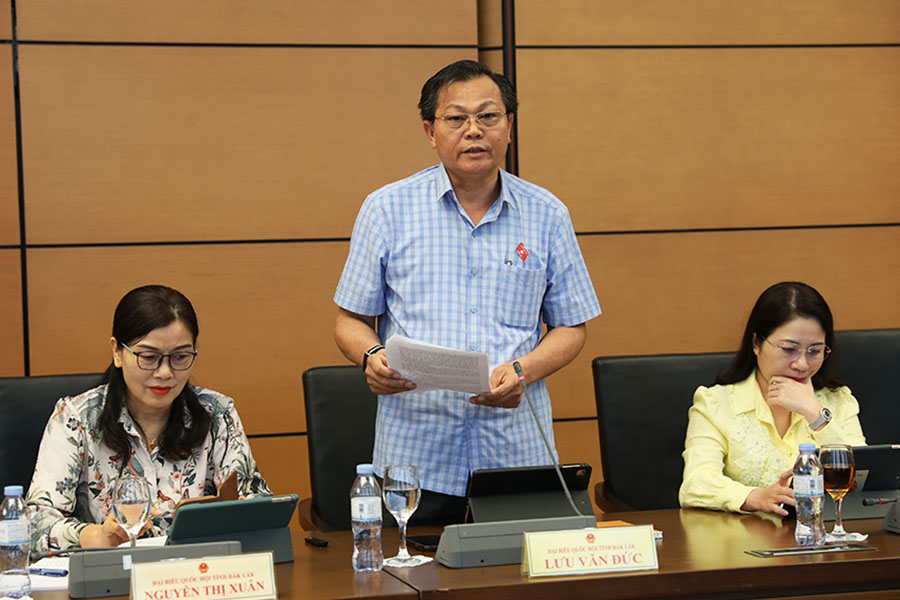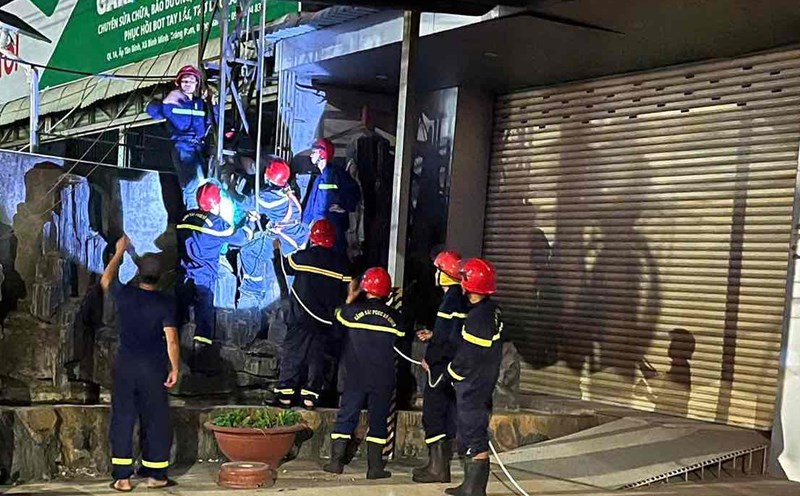Continuing the 9th session, on the afternoon of May 15, the National Assembly discussed the group about the law project to participate in the United Nations peacekeeping force; draft resolutions of the National Assembly on private economic development mechanisms and policies; The draft Resolution of the National Assembly on a number of special mechanisms and policies, creating breakthroughs in the construction and organization of law enforcement.

Extending income tax exemption and reduction for startups
Regarding the draft Resolution of the National Assembly on mechanisms and policies for private economic development, delegates proposed many opinions to make the Resolution effective when put into practice.
Participating in contributing opinions in group No. 13, delegate Nguyen Nhu So - National Assembly Delegate of Bac Ninh province assessed that the draft Resolution has initially institutionalized many major and important policies set forth by the Party in Resolution No. 68-NQ/TW.
According to the delegate, the draft shows innovative thinking in policy making, with a comprehensive and synchronous approach in many core aspects such as land, tax, credit, science - technology, innovation, human resource development and administrative procedure reform.
"This is a very remarkable step, demonstrating a strong commitment to creating a favorable and equal environment for the private economic sector to develop sustainably and sustainably," said delegate Nguyen Nhu So.
However, "for the Resolution to truly have live output and practical effectiveness" - the delegate suggested reviewing some contents.
Regarding the policy of exempting and reducing corporate income tax, the delegate said that the time stipulated in the draft Resolution is still too short, not enough to create development momentum for the group of innovative startups (2 years of tax exemption and 50% reduction in the next 4 years).
The delegate proposed to increase the corporate income tax exemption period to 5 years, then continue to reduce 50% of the tax payable in the next 5 years.
Emphasizing the internal difficulties of innovative enterprises, the delegate analyzed that this group often has to invest heavily and for a long time in research, product development, testing of business models, building core technology, recruiting and retaining high-quality human resources.
During that process, businesses face the risk of prolonged losses, even no profit in the first 5 to 7 years of operation.
"Extending the tax exemption and reduction period will help create important financial space, helping businesses focus resources on investment and innovation.
This is also a way to demonstrate the role of the State in nurturing the startup ecosystem, thereby contributing to promoting rapid and sustainable growth", said delegate Nguyen Nhu So.

The delegate also proposed exempting personal income tax for 5 years on the salaries and wages of experts and scientists working at innovative startups.
Clarifying the concepts of "priority" and "weak people"
Also in Group 13, delegate Luu Van Duc - Member of the National Assembly of Dak Lak province assessed that the full institutionalization of the Resolution's contents is an important basis for removing barriers, creating more strong development space for the private sector.
However, the delegate said that some provisions in the draft Resolution are still general and not specific to be applied in practice.
In particular, according to the delegate, in Article 11 on incentives for contractor selection, the Resolution stipulates "priority for small and medium-sized enterprises owned by people in vulnerable groups" but is not specific.
The delegate suggested that it is necessary to clarify the concept of "weak people" and should only prioritize groups that are truly capable of effective participation, such as women, ethnic minorities, people with disabilities, young entrepreneurs, and businesses in remote areas.

The concept of "priority" stated in the draft Resolution is also unclear.
"It is necessary to clarify which criteria are prioritized, how are procedures applied, and how are implementation mechanisms to avoid the situation of general regulations that are difficult to implement in practice," delegate Luu Van Duc suggested.
Regarding implementation responsibilities, the delegate suggested that there should be clear regulations on reviewing responsibilities, avoiding shirking and avoiding responsibilities in the process of implementing policies. If not clarified, the Resolution may continue to face difficulties in implementation.











